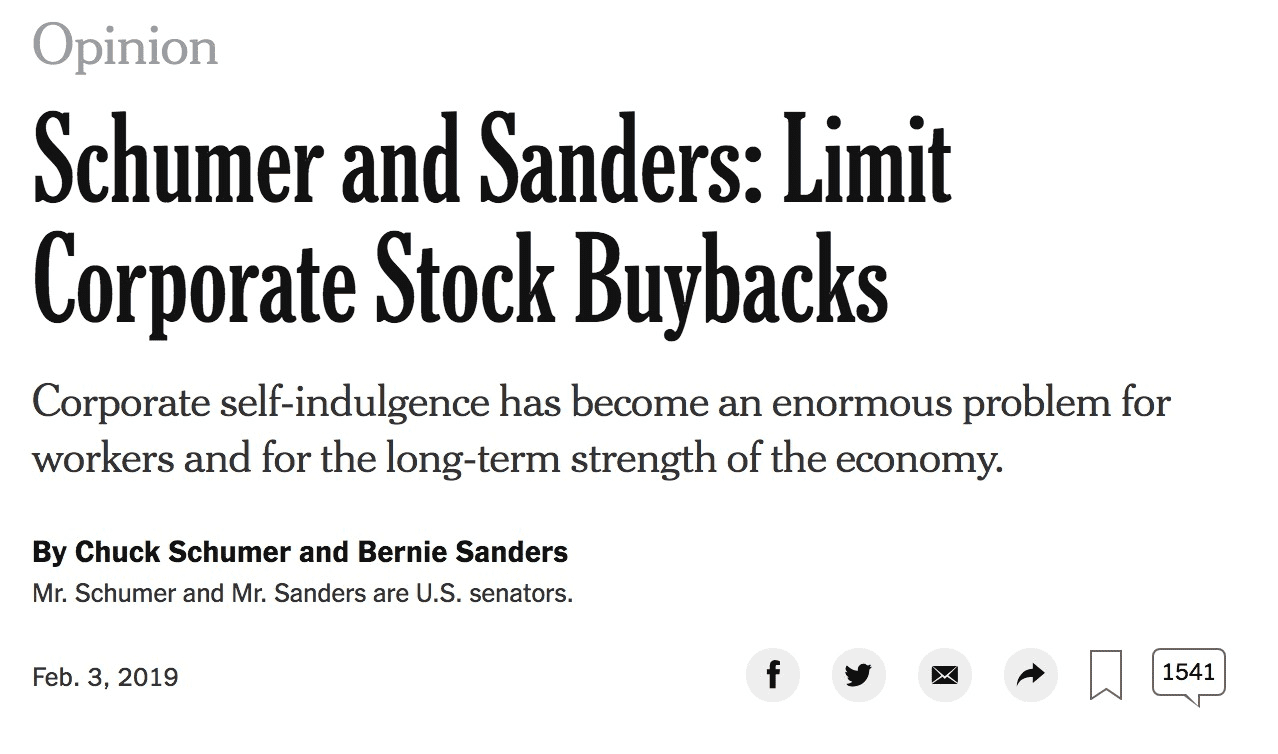
A new system
10 February 2019 • 10 min read
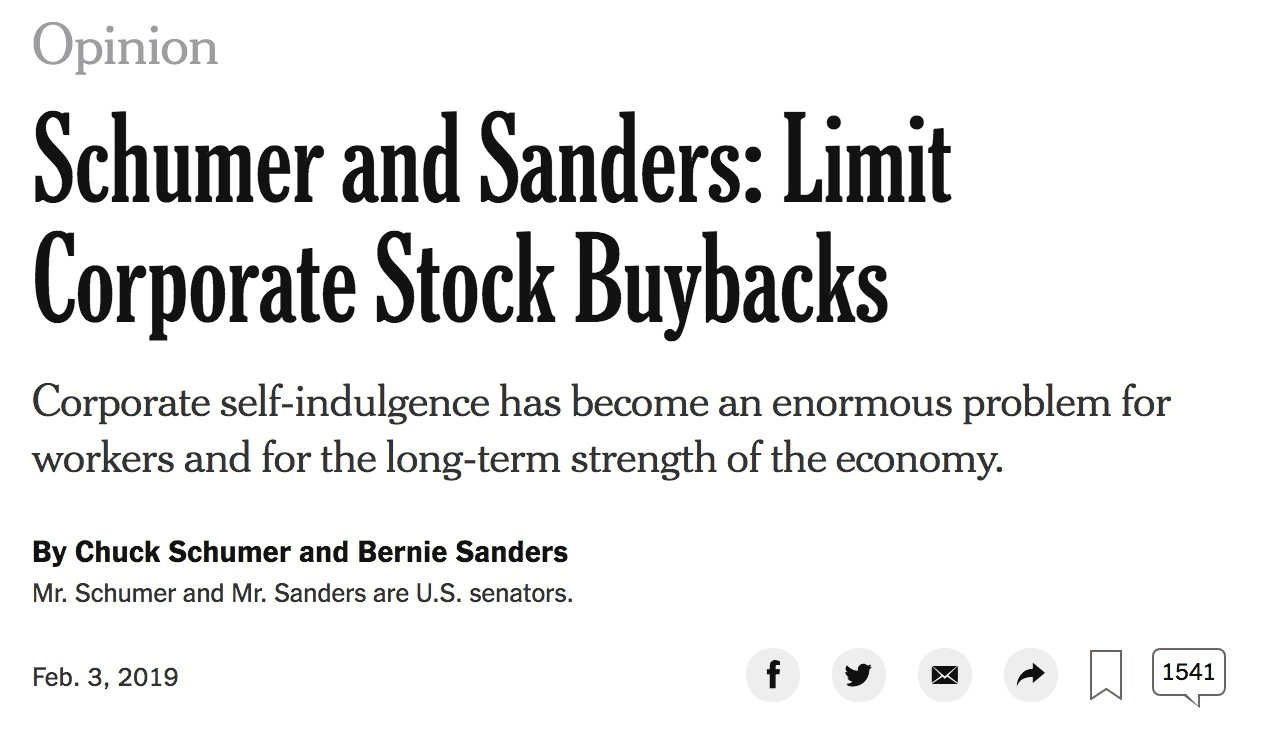
I have been reading a lot of commentary recently from “outsiders” (those who do not partake in the capital markets) on the limitations of our system for investing in companies. I think it is safe to say that our system, which is largely unchanged over the last century, could use some modernization.
Technology has certainly changed the way we trade. The frequency of trading and volumes have changed. Quant funds have built software to automate investment decisions. Investing has opened up to retail investors and spreads have shrunken tremendously.
However, the system itself is not fundamentally different. Even my fellow stock-traders will often comment that the stock market is rigged in favor of the big money.
The current system of investing through public exchanges and common shares has plenty of flaws. Just this week, Bernie Sanders and Chuck Schumer launched a public debate (at least it seems like a hot debate for my fellow #FinTwit nerds) on stock buybacks and their effect on the public.

The criticism for share buybacks is largely in promoting further wealth disparity. My personal criticism in share buybacks is that they are largely used to pump vanity metrics for investors. It is also not the best allocation of capital from recent tax cuts in terms of long-term health of the company.
What if a better system already exists but has simply been publicly-shamed a a fraud and a scam?
Last week I was at lunch with some clients. These clients are some of the more intelligent technologists that I know, having spent 20 years building platforms for one of the world’s largest investment banks.
I mentioned that I am excited by the future of cryptocurrencies and distributed ledgers. “Still?” they asked.
It can be difficult to be a believer in crypto. The precipitous drop in Bitcoin price. The abject failure and fraud of several ICOs.
An ICO, or Initial Coin Offering, is a means of raising capital through the issuance of a new token. This token represents ownership in the company, app, cryptocurrency, or other representation. “Shares” are purchased using cryptocurrencies or traditional fiat currencies. ICOs provide for a tangible representation of ownership share in a company.
The truth is, buzzwords aside, an ICO is the purest form of investment because it connects an investor directly to the investment. Remember, that the whole initial point of the stock market was to make it possible to aggregate capital from believers in a business to promote growth in that business.
The ICO is an alternative to the Initial Public Offering (IPO) that every publicly-traded company has used as a means for selling shares of the company to the public. IPOs on traditional exchanges are heavily-regulated and have a very robust “supply chain” with many intermediaries such as the listing exchange, several investment banks, clearing-houses, market-makers, brokerages, regulatory bodies, and on and on.
The truth is that both of these systems allow for, and in some cases promote, fraud. Recent ICO frauds have been highly-publicized as being ponzi schemes that prey upon unsuspecting “investors.”
A quick trip to https://deadcoins.com/ will reveal how many ICOs have failed or led to complete and total loss of investment.
The potential of an ICO should not be dismissed, however, as we search for a system of investment in companies that is not morally bankrupt. Our existing “safe” system for investing in companies may not necessarily bankrupt an investor overnight, but it certainly can (and does) bankrupt investors over time.
In what ways could a new system like an ICO present a solution to the problems of public investing?
Cutting out intermediaries and creative accounting
“Trusted intermediaries” are intended to create comfort for investors that their money is safe, that there is transparency in the system. Publicly-traded securities are regulated by the Securities Exchange Commission and there are thousands of laws that govern the issuance and trading of shares in publicly-traded companies.
The idea is that there is safety also in the complex supply chain of filing for an IPO to raise capital for a business and in the ongoing trading of shares. However, these trusted intermediaries each rely upon their piece of this supply chain for profit. While not colluding per se, the profit incentive for each component company is an opposing force to the buyer of common shares.
Furthermore, many of these companies are using creative accounting to attempt to meet the expectations of analysts and investors. From falsely driving up user counts to padding Earnings per Share (EPS), many growth stocks will tell a narrative for as long as possible to satisfy consensus expectations on financial performance.
At the end of the “value chain,” regular investors are often left holding the bag. Previously hot companies often completely collapse after redistribution of ownership, which allows early investors to cash out while retail investors are left holding the stock as it approaches $0.
An ICO could largely eliminate these inefficiencies and misleading representation. Direct investment and direct issuance of shares in a company cuts out the “trusted intermediary.” It reduces the supply chain in issuance of common stock, therefore adding more trust and less cost to investing.
Additionally, many cryptocurrencies are designed to limit the supply. Therefore, both share buybacks and dilution could be impossible under the ICO construct. Since the ownership share would be directly tied to the value of the currency itself, opportunity for deceit would be limited.
Slack recently announced its plans to IPO via direct listing. This means they will not use an Investment Bank to create a market for investors, and the company will list directly on the exchange. Spotify did this previously, and this is an intermediate step that shows we are gravitating to a more direct-to-investor model.
Promoting investments over trades
This one is my biggest personal issue with the nature of owning stocks today. Many old-school investors will write about “trading versus investing,” but it’s virtually all trading at this point.
A stock that does not pay a dividend almost has no intrinsic relationship to the actual financial success of the company. The Initial Public Offering of a company is a receipt of dollars directly from an investor to the company. The initial goal of an IPO was truly to raise capital for growth from investors.
However, beyond the IPO, the relationship between common stock holders and the company itself is loose. A growing share price actually does little to impact the company itself other than through a display of investor confidence. If the company does not pay a dividend to a shareholder, the “investor” likewise has no connection to the actual success of the business. In non-dividend yielding stocks, the only way to realize a gain is to actually trade the stock.
Active trading can be fun and can even be a source of income. But investing means owning stocks that pay a dividend and holding them over time. In fact, Shark Tank’s Kevin O’Leary recently said that 71% of wealth from investing has come rom dividends over the last 40 years.
A blog did a fact-check analysis on this and actually found that O’Leary’s number was not far off. Even in dips, the reinvested dividends number is often higher than peak amount not re-invested.
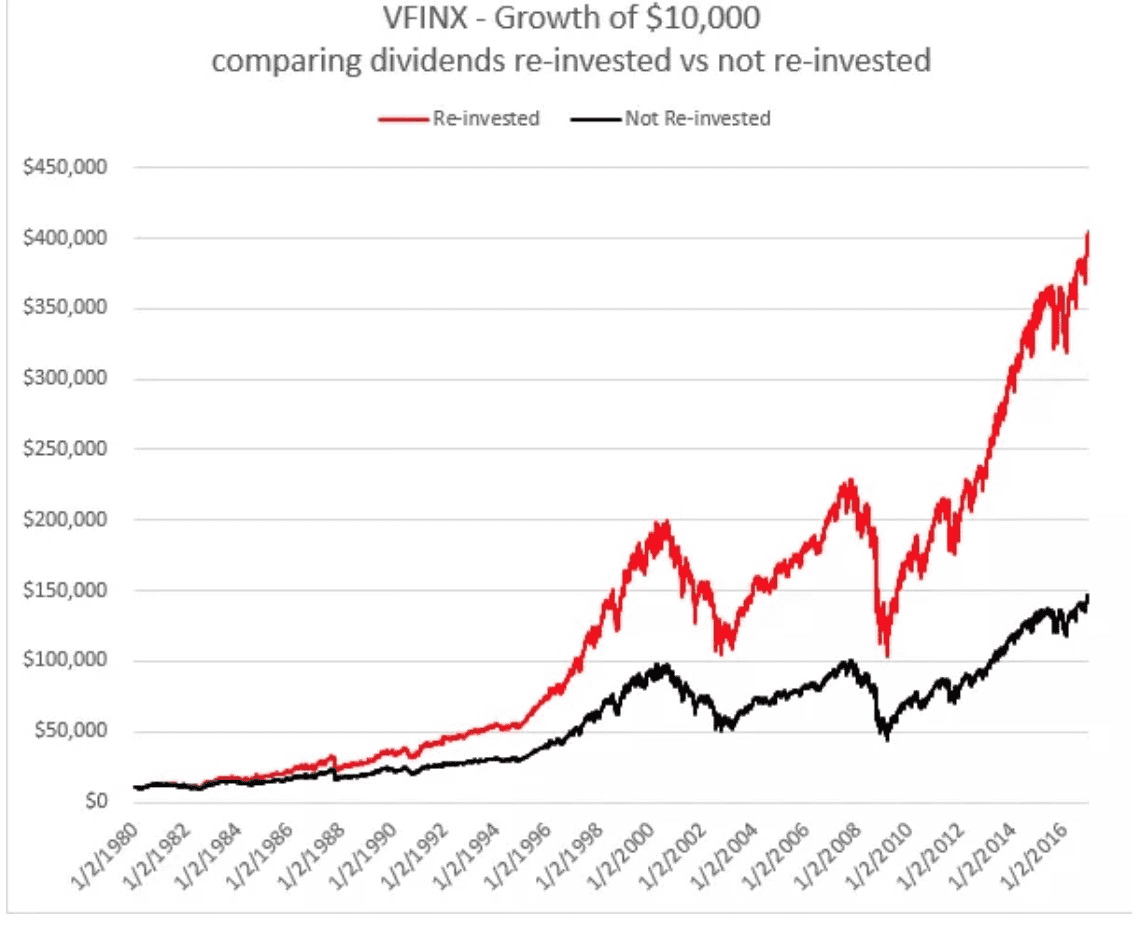
However, our current paradigm promotes trading over investing. With $0 stock trades, and many traders choosing options over common stock, the trend is moving to shorter holding periods. As of this writing, 3 of the 5 largest stocks by market capitalization (AMZN, FB, BABA) do not offer a dividend.
Blockchain transactions tend to be more costly which does have the effect of encouraging longer holding (HODLing) periods. Companies with a coin offering could reward these long-term investors with dividends, which allows investors to profit without trading the position. There is no certainty that coin offerings would incentivize investing over trading, but the closer that an investor feels to the success of the business itself, the more likely the investor is to hold.
Promoting early investment by all
Finally, the most important benefit to a new ICO-based system would be to facilitate early investment to a broader audience. There are several limitations to the current system. Oftentimes the biggest believers in a company’s purpose do not have access to investment in the company at an early stage. This privilege is reserved for those that are closely-tied to venture capital firms. With growing wealth disparity in America, the vast majority have no access to the single-greatest source of wealth-building. Throwing change in a piggy bank may be good for your psyche, but it does nothing for building wealth.
I much prefer early stage investing to buying stocks in publicly-traded companies. It makes the investor feel closer to the company’s vision and success. Promoting broader access to private an early stage investing would promote healthier investing practices and more motivated investors. It also creates the potential for tremendous upside and prevents investor FOMO which drives bubbles. A good example would be to consider the returns of early bitcoin HODLers versus those who bought around the peak two years ago.
So, what is holding us back from building a new system?
Nothing. And everything.
That big fat investor supply chain that I mentioned is the biggest barrier. As a company grows from an idea to a stock, there are venture capitalists, attorneys, investment banks, hedge funds, clearinghouses, exchanges, and financial advisors that all get a cut. Making that all go away over night is not a possibility.
There is also that thing called regulation. The Securities Exchange Commission oversees the creation, sale, and distribution of company shares and replicating a parallel exchange while circumventing the SEC ain’t gonna happen.
There is hope, however. Today it is fairly easy to invest in private and early stage companies for accredited investors. An accredited investor is anyone who has earned north of $200,000 ($300,000 for couples) for two consecutive years or who has a net worth north of $1,000,000.
Buying common stock, however, does not have such requirements. I find this ironic if you consider the trajectories of some well-known stocks in recent years. Take a look at the performance of Blue Apron and GoPro stocks below and tell me if being publicly-traded removes investor risk.
Blue Apron
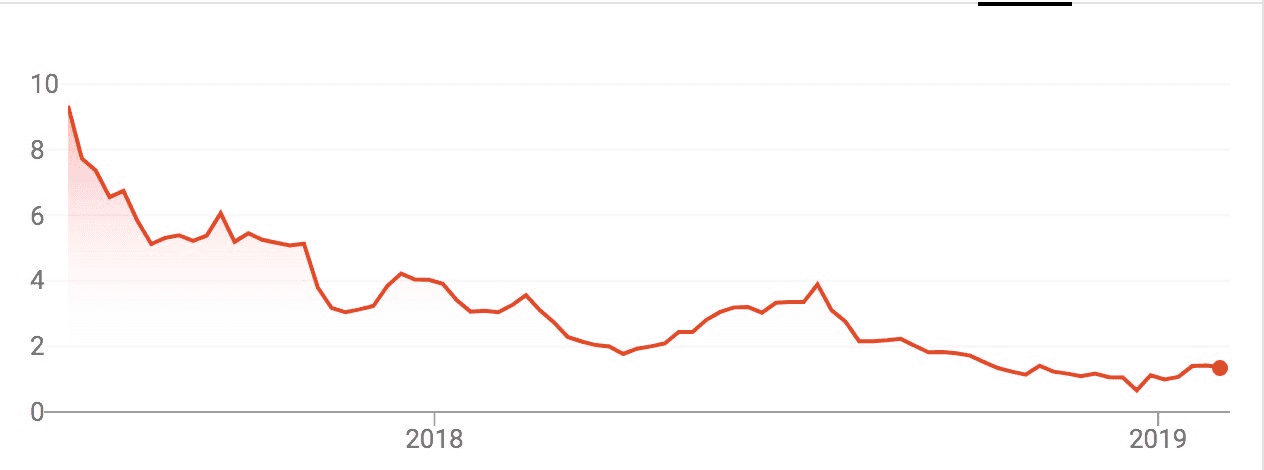
GoPro
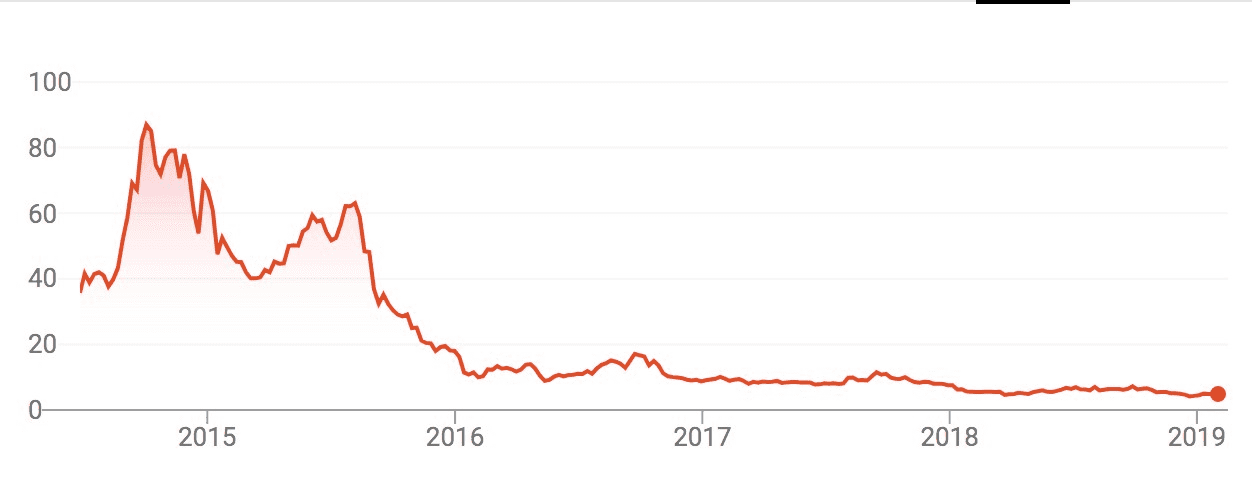
In fact, it is even more likely that the average person will be the eventual bag-holder for common stocks, but that is a topic for another day.
There is a long way to go to for ICOs to become the next best system for the investing public, but it is clear that the current system has room for improvement.
Currently some of the biggest and most successful “startups” are planning to IPO. The pendulum could swing to this new paradigm if one of these respected firms were to break the mold and announce an ICO. Of course, with founders and early employees having sacrificed so much to build these companies, I wouldn’t expect anyone to easily turn down the big payday of an IPO anytime soon.
Get the latest posts delivered right to your inbox.
trading, investing, tech stocks, crypto
Share:
